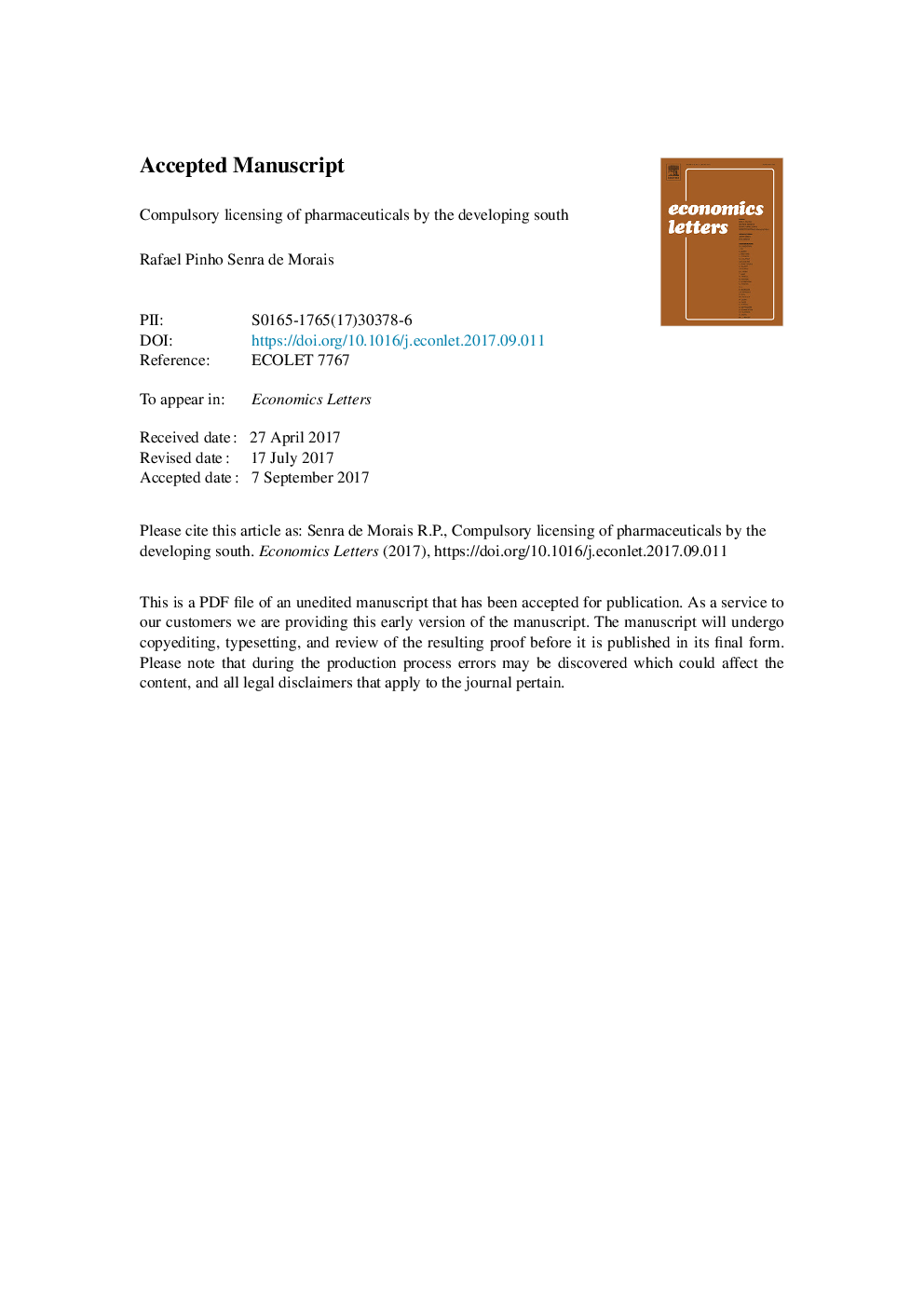| Article ID | Journal | Published Year | Pages | File Type |
|---|---|---|---|---|
| 5057515 | Economics Letters | 2017 | 10 Pages |
Abstract
Compulsory licensing (CL) of medicines by a developing South unambiguously improves access to treatments by its population. Its impact on profits and thus innovation rates and welfare is a more controversial issue in the literature. This paper proposes a North-South model dealing with parallel trade, price controls and compulsory license (if the South is not served). Our results challenge the literature claiming that parallel trade leads to higher innovation and welfare. Moreover, conditions apply for CL to be used; in particular, it should never be used for neglected diseases, as malaria and tuberculosis. When the South issues CLs, it is compensated for the welfare losses caused by the North allowing parallel trade, and innovation and northern welfare do not decrease. The best outcome, however, is market segmentation, i.e. no parallel trade in the first place.
Related Topics
Social Sciences and Humanities
Economics, Econometrics and Finance
Economics and Econometrics
Authors
Rafael Pinho Senra de Morais,
